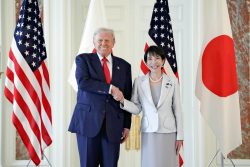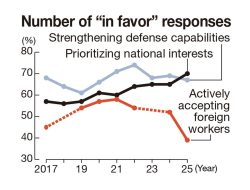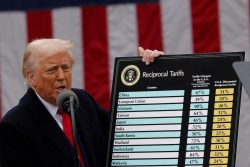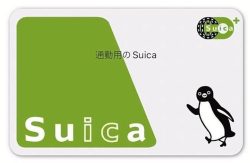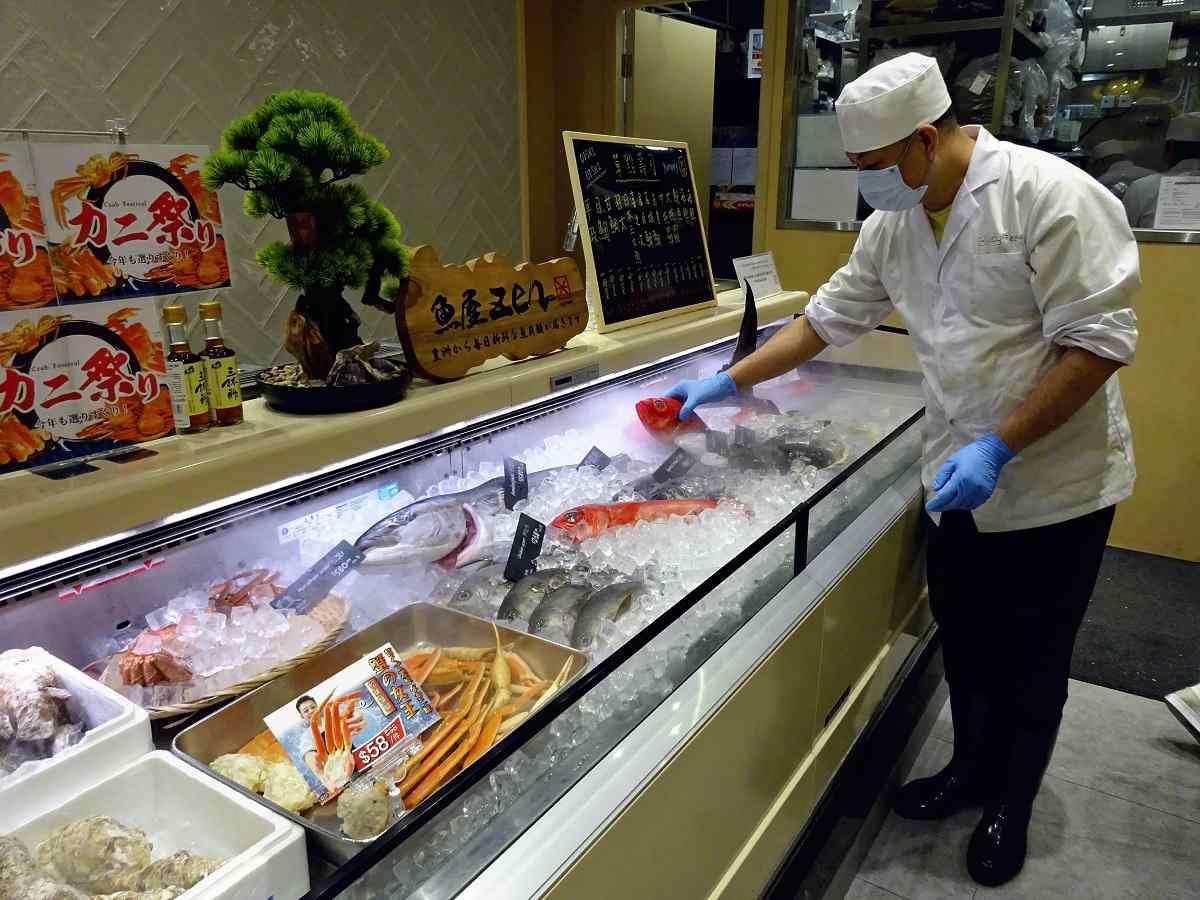
A chef selects fish at a Japanese restaurant in central Hong Kong on Aug. 30.
14:48 JST, September 2, 2023
HONG KONG — More than a week after the Hong Kong government banned imports of seafood from 10 Japanese prefectures, Japanese restaurants in the region are concerned that the situation could be drawn out.
Many Hong Kongers are taking an objective approach to claims by the Chinese government about the sea release of treated water from the Fukushima No.1 nuclear power plant that lack scientific evidence. Nevertheless, a Japanese restaurant association said the issue is being felt at some businesses operating in Hong Kong.
A constant stream of diners entered a Japanese seafood restaurant in central Hong Kong during a recent visit. A 43-year-old worker in the financial sector who bought sushi said there was no problem from a scientific perspective so he would continue to eat Japanese fish.
However, a 77-year-old who left without ordering anything said: “I last ate Japanese fish before the discharge. I came here because I was curious, but I won’t eat because I’m worried.”
Hong Kong was the top export destination for Japanese seafood from January to June this year, at ¥51.6 billion, dwarfing China at ¥45.6 billion.
According to the Hong Kong Japanese Restaurant Association, the number of Japanese restaurants in Hong Kong has more than doubled to about 2,000 over the past decade.
A Japanese restaurant offering fish from parts of Japan unaffected by the import ban has been full of customers since the treated water discharge began, but other establishments have seen a drop in visitors.
“Sales have fallen 30% on average,” an association official said.
After the meltdown at the Fukushima No.1 nuclear power plant in 2011, the Hong Kong government required certificates with radiation levels for seafood imports from five prefectures including Fukushima but did not impose an import ban. Now, Hong Kong has imposed an import ban, but it is limited to seafood from 10 prefectures including Tokyo and Fukushima, in comparison to China, which has banned all Japanese seafood imports.
The widespread popularity of Japanese food in Hong Kong is believed to be behind the Hong Kong government’s decision not to implement a blanket ban.
However, as long as Beijing takes a hardline stance against Japan, Hong Kong has no choice but to stay in step with it, which could result in an extention of the ban.
Simon Wong, chairman of the Hong Kong Federation of Restaurants & Related Trades, expressed an understanding of the Hong Kong government’s measure.
“It’s important to ensure safety for citizens,” Wong said. “I hope the situation calms down soon. But if high radiation levels are detected, the effects would be immeasurable.”
"World" POPULAR ARTICLE
-

China Urges Citizens to Refrain from Visiting Japan, Citing Surge of Crimes Against Chinese
-

Mozambican Cooking Class Held in Matsuyama, Ehime Pref.; Participants Don Aprons, Bandanas Made from Traditional Mozambique Fabric
-

8 Japanese Nationals Stranded on Indonesia’s Sumatra Island
-
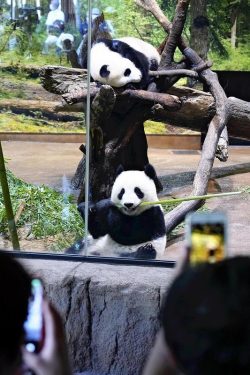
China Steps Up ‘Wolf Warrior’ Diplomacy Against Japan, Hurling Accusation About Plutonium Stockpile
-

Taiwan’s Lai Calls on China to Exercise Self-Restraint; Says Attack on Japan Endangers Regional Peace and Stability
JN ACCESS RANKING
-
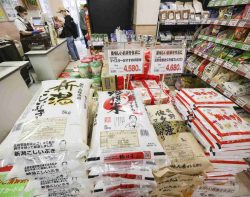
Govt Plans to Urge Municipalities to Help Residents Cope with Rising Prices
-
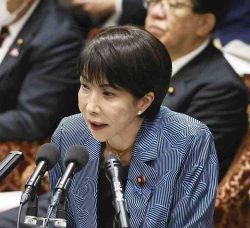
Japan Prime Minister Takaichi Vows to Have Country Exit Deflation, Closely Monitor Economic Indicators
-

Essential Services Shortage to Hit Japan’s GDP By Up to ¥76 Tril. By 2040
-

Japan to Charge Foreigners More for Residence Permits, Looking to Align with Western Countries
-

Japan GDP Down Annualized 1.8% in July-Sept.




